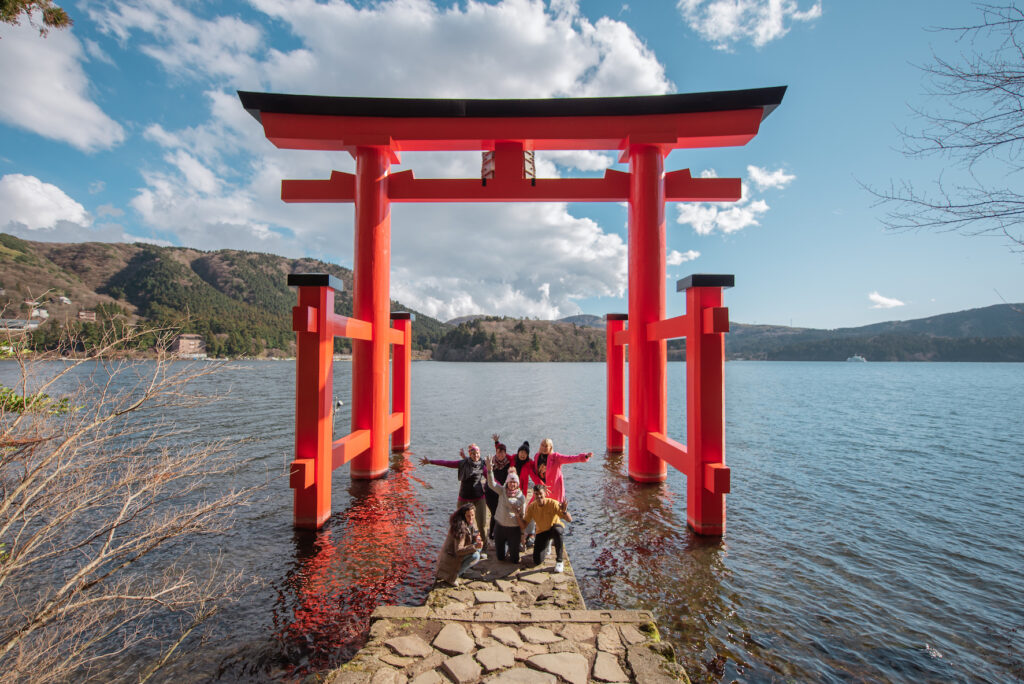TORONTO — How wonderful to be sharing travel trends again, as one stupendous recovery year heads into the home stretch, and another incredibly strong year beckons.
That’s exactly the position Intrepid Travel CEO James Thornton finds himself in.
Thornton was in town earlier this month, meeting with Intrepid’s North American team, headquartered in Toronto.
For this exclusive interview with Travelweek, Thornton looked back on travel’s biggest talking points, from a gangbusters 2023, and ahead to the last few months of 2023 and the start of 2024.
Thornton likes to joke that Intrepid Travel “is a 35-year old overnight success story.” As important trends like sustainable travel and experiential travel gain traction with the general public, Intrepid is in the spotlight more and more, with many travellers discovering the company for the very first time. Meanwhile Intrepid has been around since 1989, espousing for decades the responsible travel conversations that are dominating travel today.
First and foremost, of course, is climate-conscious consumption. It’s the number one talking point in travel, and not surprisingly it tops Thornton’s list too.
“Travellers are increasingly mindful” of their travel habits, he tells Travelweek. “They want a lighter footprint.”
While over the years the certified B Corp. has rolled out many, many initiatives focused on climate-conscious travel, its latest – carbon labeling – makes a traveller’s footprint clear from the get-go. Now displayed on over half of Intrepid’s trip pages – comprising 500+ itineraries – including Intrepid’s top 100 trips – the carbon label will show the total CO2-e of the trip per traveller, per day.
While Intrepid offsets emissions for all trips and continues to decarbonize its tours where possible, these labels will help travellers understand and compare the impact of their travels, including benchmarking it against everyday activities for better context.
A recent research report conducted for Intrepid by The Harris Poll showed that 64% of people globally have no idea what their carbon footprint is. However, according to the survey, 60% would be more likely to book trips with a company that is transparent about their environmental impact, and more than one in two people globally would be more willing to alter their plans if they could easily see and understand the carbon impact of each travel option.
In addition to the rollout of carbon labels, Intrepid remains committed to developing lower carbon itineraries.
In 2024, the company will have approximately 4,000 fewer flights on trips (compared to 2023) and will be discontinuing all scenic flights.

Hakone, Japan with Intrepid Travel
“We’re seeing more flight-free travel,” says Thornton, adding that Intrepid is in the process of taking short-haul internal flights (i.e. less than 90 minutes) out of itineraries where rail alternatives exist. It’s an approach that France has taken – short-haul flights have been banned in France where rail alternatives can make do – and Thornton says the EU is looking at similar measures.
Thornton’s second point – shoulder-season travel – is another key point in the sustainability conversation. Fall bookings are up 56% for Intrepid, while spring bookings are up 70%. Tour operators and tourism boards have been promoting shoulder season travel for years, with an eye to easing the high-season burden on destinations. No doubt fuelled by high-season sell-outs as travel demand continues to surge, it seems as though travellers are finally getting the message.
Thornton’s third point – family travel – comes as no surprise to travel advisors fielding constant requests for family vacation bookings. Family travel, and especially multigenerational travel, has been one of the biggest travel trends coming out of the pandemic, as people seek to reconnect with loved ones in a special destination. “Families are finally feeling confident booking those big trips,” says Thornton.
And where are those families going? The list is long and diverse, from Europe to the Middle East to Asia, with highlights like South Korea and Japan. Which brings us to Thornton’s fourth and final talking point: trending destinations.
Japan is seeing “huge, huge” demand, says Thornton. The country’s reopened to individual visitors just about a year ago, making it one of the last destinations to reopen after the pandemic. Interest in travel to Japan was immediate and hasn’t ebbed. “We expect to have the biggest cherry blossom season we’ve ever had in 2024,” says Thornton.
South Korea is also topping the charts for Intrepid, with a rapid rise from 80 departures to 130+ departures for 2024.
Many of Europe’s hidden gem destinations are seeing interest too. Slovenia, Slovakia, Corsica, Albania – all are getting inquiries, particularly from travellers who have seen much of Europe and are looking for new adventures. Others just want to get off the beaten track. Of course, perennial best sellers Spain, Greece and Portugal are booming too. Morocco is strong and Thornton urges travellers to continue visiting Morocco despite the recent earthquake, to support the country. The quake’s epicentre was in the High Atlas Mountains, more than 70 km from Marrakech.
Travelling to 120+ countries, with more than 1,000 itineraries (Basix, Original, Comfort and Premium), Intrepid has plenty of options.
One destination primed for a comeback is Peru. The always popular destination was dogged by civil unrest fuelled by political protests earlier this year. In February, Machu Picchu reopened after a nearly month-long closure. In collaboration with a local Peruvian community, Intrepid has developed a new section of the Quarry Trail. Located in the Andes Mountain region and spanning 26 kilometres, the Quarry Trail has become known as an off-the-beaten-path alternative to the popular Inca Trail in recent years.
Machu Picchu “is still the top-searched destination from Canada” for Intrepid, says Thornton.
Worldwide, to all of its destinations, Intrepid’s volumes are up 70% year to date over 2019. The company gets about 30% of its bookings through travel advisors. Thornton says Intrepid welcomes bookings from all distribution channels: “We’re channel agnostic.” Agents can log in to the company’s agent portal from the main site.
The average age of an Intrepid traveller is around 43 – 44 years old, and that busts open one of the biggest misconceptions when it comes to Intrepid’s travel style, that the company caters to travellers in their 20s and 30s. Thornton says Intrepid veers more to psychographics than demographics, and that Intrepid travellers of all ages mix well on trips.
That said, Thornton shares three ‘typical traveller’ profiles that comprise a big part of Intrepid’s client base. First, there are university-educated single women in their 30s and 40s who have limited free time but who want to see the world. Second, the Boomers. Their kids are grown up and out of the nest, and these travellers want to see the world too. And finally, there are the first-time travellers who gravitate to the structure and camaraderie of group travel.
Many travellers associated Intrepid with adventure travel, but Thornton says the company is steering away from using that designator, and towards experiential travel instead.
Experiential, sustainable travel has “hit its stride” in the Canadian market, says Thornton. And even better, “Canadian travel advisors, and travellers, are ready for it.”

Morocco (photo credit Michael Armstrong)
This article originally appeared in the Sept. 28, 2023 issue of Travelweek. To read the issue, click here.

